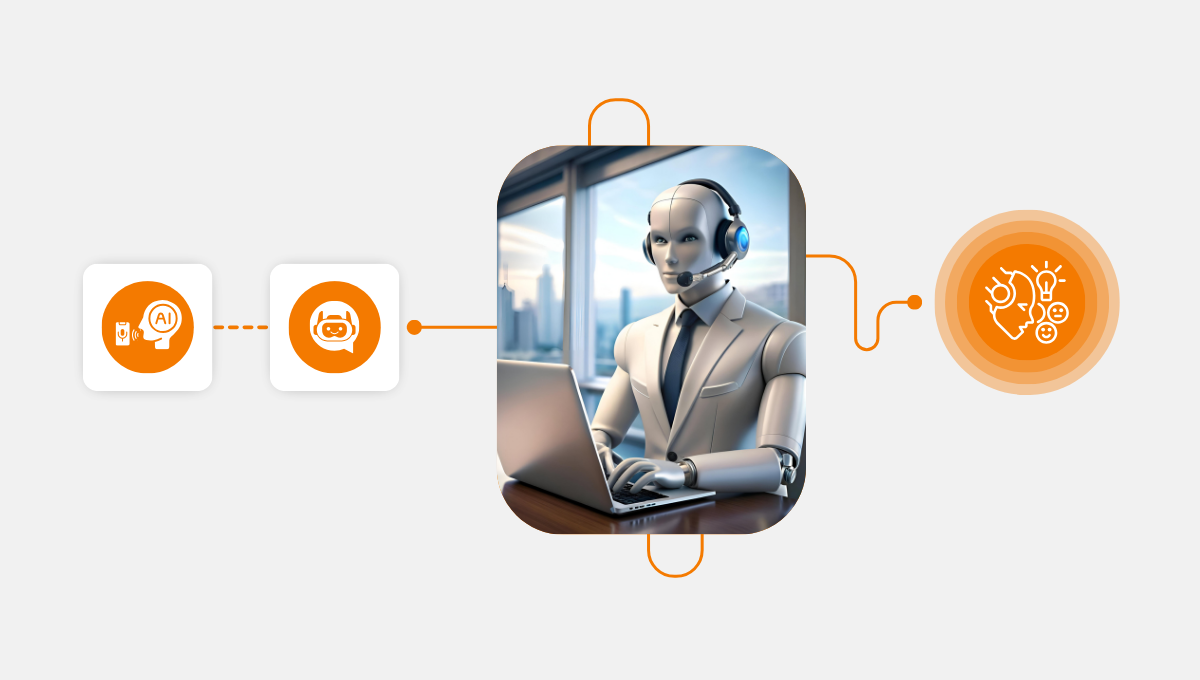Dealing with unhappy or dissatisfied customers is challenging and stressful for contact center agents. Every agent needs customer conflict resolution skills in order to handle customer complaints effectively.
Conflict can also occur between colleagues. Everyone wants a conflict-free environment, but the key thing is to approach conflicts with the right strategies.
Let’s take a look at tips for creating a positive customer experience and working in a more stress-free environment with your colleagues.
What are conflict resolution strategies for customer service?
Conflict in customer service refers to a disagreement or dispute that arises between a customer and a product/service provider. This can occur for a variety of reasons, including:
- Poor communication,
- Misunderstanding,
- Product/service dissatisfaction,
- Delayed product/service delivery or any other issue.
Conflict resolution includes the following steps:
- Identifying the problem: This requires active listening and understanding the issue from the customer’s perspective.
- Acknowledging the issue: It is important to recognize the issue and apologize for any inconvenience caused to the customer.
- Finding a solution: It is vital to find a solution that satisfies the customer. This may involve offering a refund or replacing a product.
- Following up: It is important to follow up with the customer to ensure that you have resolved their issue effectively and that they are satisfied with the outcome.
Customer services need a clear conflict resolution process and must train employees on how to handle situations professionally and empathetically.

Conflict resolution strategies for contact centers
In the fast-paced world of contact centers, conflicts are almost inevitable. However, it is essential to have effective strategies to resolve conflicts.
1. Active listening
Active listening means listening carefully to the other person’s perspective without interrupting or judging them. This encourages agents to pay attention to the client’s concerns and to try to understand them.
Active listening is a skill that you should adopt in all communications, not only with customers but also within your business environment more generally. By doing so, you can help alleviate conflict situations and find mutually beneficial solutions.
2. Empathy
Empathy emphasizes understanding and accepting the feelings and emotions of the other person.
Agents must be trained to put themselves in the customer’s shoes and to understand their emotional responses. This helps build rapport and trust with the client and leads to a more positive outcome.
3. Giving the customer time to calm down
When customers are angry, they often want to express their emotions. Allowing them to do so demonstrates that you truly care about their concerns and are willing to work with them to find a solution. This approach can help them to calm down and become more cooperative.
This approach not only gives your agents time to come up with solutions, but it also helps create the right environment for more effective communication.
4. Keeping calm
It’s easy to get frustrated or angry when dealing with a difficult customer or talking to a stressed-out colleague. However, it is important to remain calm and professional.
To do this, you need to take a step back and breathe. You should try to calm down by taking control of your tone of voice and staying open to different perspectives.
5. Offering solutions
When conflicts arise, it is wise to focus on finding a solution rather than dwelling on the problem. You should work with the other person involved to find a mutually beneficial solution that addresses their concerns.
Additionally, if possible, involve your customers in the solution by presenting different options and letting them evaluate. This improves the collaborative environment.
6. Escalation
In some situations, conflicts can’t be resolved immediately. In these cases, you should escalate the issue to a higher authority. This shows that you take customers’ concerns seriously and strive to resolve them promptly.
7. Patience
Sometimes a conflict can persist for a long time, even if the solution to a customer’s problem is clear and simple. It is important to remember that the customer is dissatisfied in this instance.
Therefore, instead of presenting the solution hastily, you need to manage the process patiently. Taking the time to listen patiently can help to relieve the customer’s dissatisfaction.
8. Soft language
Choosing the right words is critical, especially when communicating with customers. After all, you don’t want to further upset an already angry customer, do you?

Using words that are too sharp, such as “never” or “impossible,” can make the customer feel even worse. Instead, using softer words like “sometimes” and “possibly” can help to prevent the customer from feeling judged, and increase the likelihood of finding common ground.
9. Apologize when necessary
If your company made a mistake, the first step is to apologize on behalf of your company. A simple two-word apology can quickly set the tone for the rest of the interaction.
Customers feel satisfied when they encounter an agent who takes responsibility and is ready to help, regardless of how angry they are.
10. Don’t take it personally
Any anger directed at the agent is rarely personal. As an agent, consider yourself as a bridge between the customer and the company. You can distance yourself from the conflict by reassuring the client that you are there to assist them.
By implementing these conflict resolution strategies, you can effectively manage conflicts and maintain positive relationships with your customers.
By applying the ten tips for conflict resolution we mentioned above, you can improve customer experience.
FAQ:
What is conflict resolution?
Conflict resolution is the process of finding peaceful and mutually beneficial solutions to disputes or disagreements between two or more parties. It includes valuable skills of a successful contact center that you can apply in personal, professional, and social settings to prevent conflicts from escalating.
What are conflict resolution skills?
Conflict resolution skills refer to the ability to handle and resolve conflicts in a peaceful and respectful manner.
Some important conflict resolution skills include:
- Active listening
- Empathy
- Collaboration
- Problem-solving
- Facilitation
- Professionalism
Having strong conflict resolution skills can help you to avoid unnecessary arguments.
In conclusion, conflict resolution is essential for the success of any contact center. Managing the process well, especially in conflicts with customers, is crucial for customer satisfaction and maintaining a good brand reputation.
Additionally, call center software can ease the workload by helping agents, thus reducing their stress levels. This, in turn, helps them better manage conflicts.
Are you looking for cloud-based software that you can quickly install? Try Call Center Studio today and take your services to the next level.




